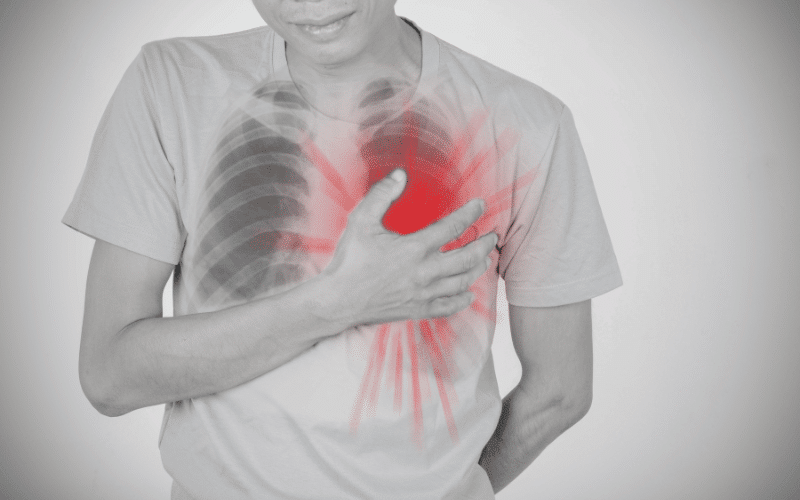Frequently Asked Questions

What are the early warning signs of heart disease in men?
Early warning signs of heart disease in men can include symptoms such as chest discomfort, shortness of breath, fatigue, irregular heartbeat, swelling in the legs, lightheadedness or dizziness, nausea and loss of appetite, excessive sweating, and erectile dysfunction. These symptoms can vary in intensity and frequency, and they may not always seem directly related to the heart.
Can heart disease symptoms come and go?
Yes, heart disease symptoms can come and go, which can sometimes make them harder to recognize. For instance, chest discomfort or shortness of breath can be intermittent, appearing during physical activity and disappearing at rest. However, any recurring symptom should not be ignored and warrants a consultation with a healthcare professional.
How is heart disease diagnosed in men?
Heart disease is diagnosed based on your medical and family histories, risk factors, a physical exam, and results from tests and procedures. Common diagnostic tests include electrocardiogram (ECG), echocardiogram, stress testing, angiogram, and blood tests. Your doctor will choose the most appropriate tests based on your symptoms and risk factors.
Can you have heart disease without chest discomfort?
Yes, you can have heart disease without experiencing chest discomfort. Not everyone with heart disease has chest discomfort as a symptom. Some people may experience other symptoms like shortness of breath, fatigue, or dizziness, while others may not have any symptoms at all, especially in the early stages of the disease.
How can men reduce their risk of heart disease?
Men can reduce their risk of heart disease by adopting a heart-healthy lifestyle. This includes regular physical activity, a balanced diet low in saturated fats, cholesterol, and sodium, maintaining a healthy weight, quitting smoking, and limiting alcohol intake. Regular check-ups are also crucial for early detection and management of risk factors such as high blood pressure, high cholesterol, and diabetes.
Conclusion: Recognizing the Signs of Heart Disease in Men
Heart disease remains a leading cause of death among men worldwide. Recognizing the signs early can make a significant difference in managing the condition and preventing severe complications. Symptoms can range from the well-known chest discomfort to the less recognized signs such as excessive sweating or erectile dysfunction. Each symptom should be taken seriously, whether it’s a persistent feeling of fatigue or more direct signs like irregular heartbeat and shortness of breath.
Heart disease can sometimes present itself subtly, with symptoms like nausea, loss of appetite, or increased sweating, leading many men to overlook their significance. However, these symptoms, when persistent, could be indicative of an underlying heart condition.
Remember, erectile dysfunction could be an early sign of heart disease due to the interconnectedness of the cardiovascular system. An issue in one area can easily affect another.
Overall, the key is to listen to your body and seek medical advice when something feels off. Regular check-ups and maintaining a healthy lifestyle can help prevent heart disease and ensure a long, healthy life. Ultimately, understanding the signs of heart disease is the first step towards proactive heart health management.